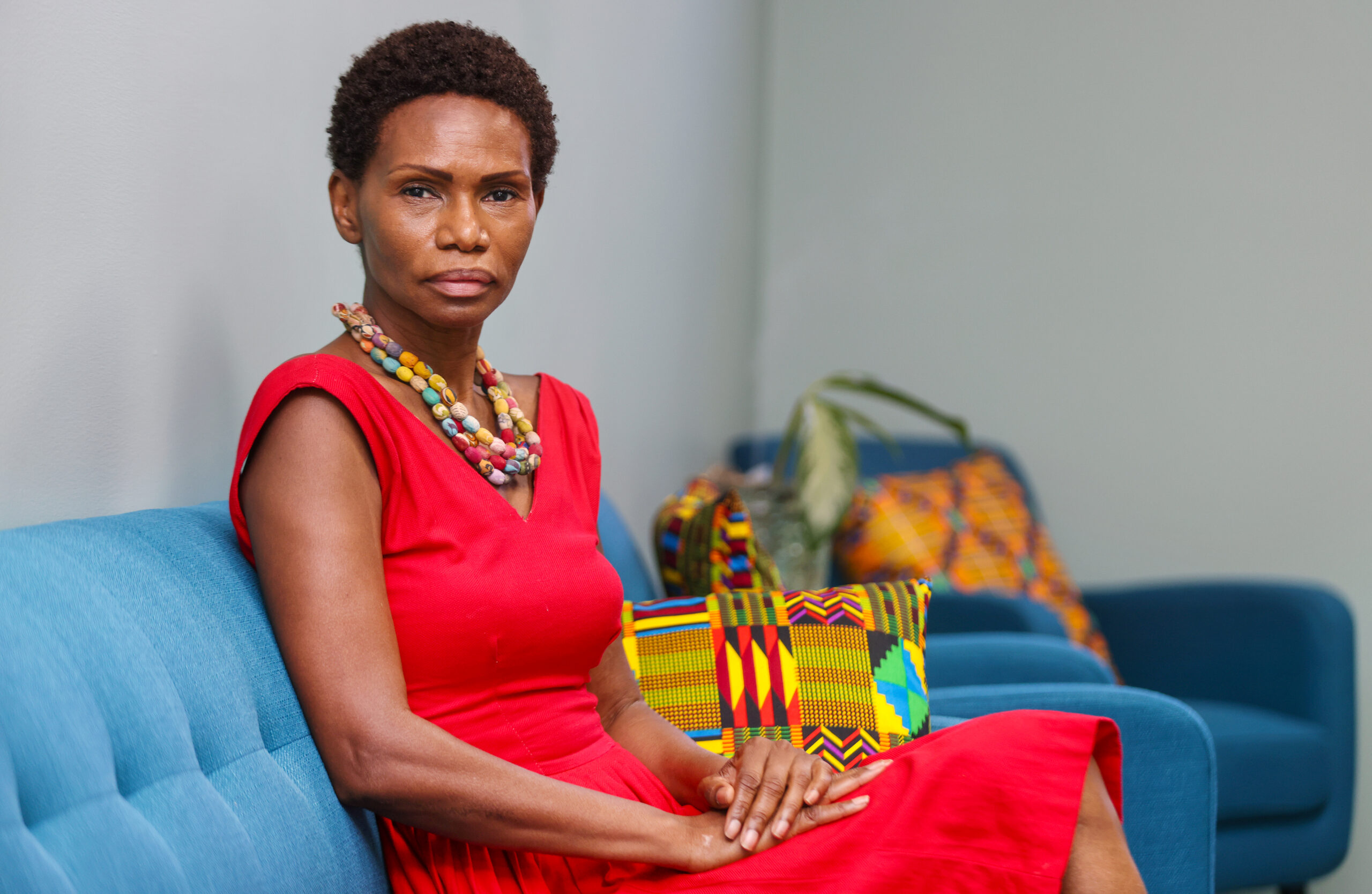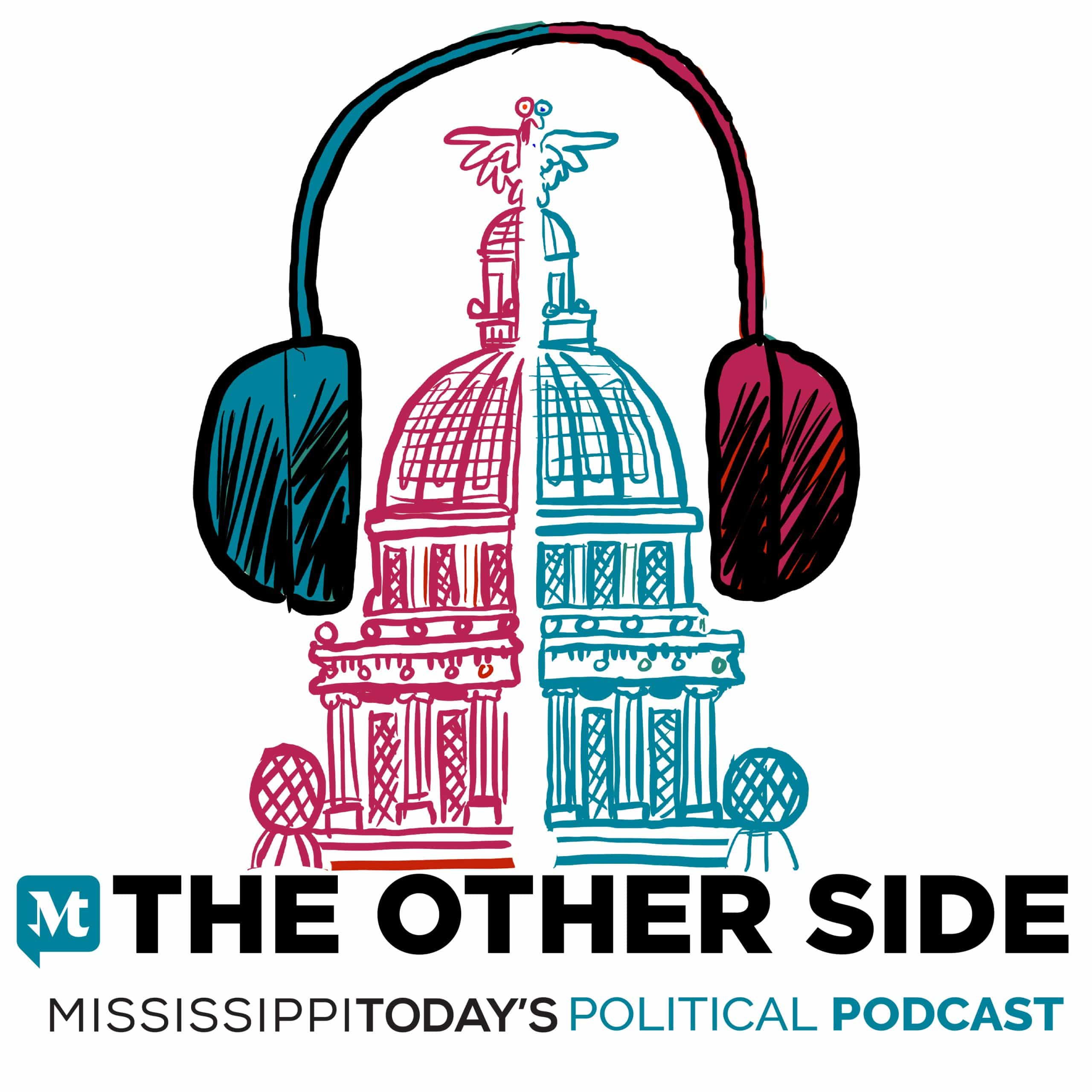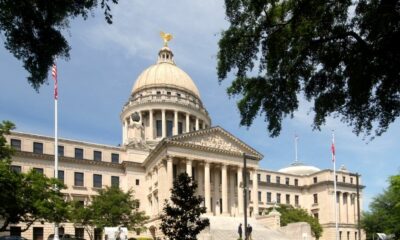Mississippi Today
Nonprofit fights for funding to open state’s first birth center

Maternity health clinic owner and public health expert Getty Israel is still on a mission: to open Mississippi's first freestanding, midwife-run birth center.
Should she be successful, Mississippi would join neighboring states such as Tennessee, Louisiana, Arkansas and Florida in providing an alternative to giving birth in a hospital setting for pregnant women who are low-risk. The birth center would also be a place for women to receive prenatal care from certified nurse midwives as well as postpartum support.
But after nearly a year working to secure funding for her nonprofit Sisters in Birth to open the center, she's come up short – and she blames what she calls an unfair and unclear federal funding process funneled through the state's members of Congress.
Israel applied for federal funds through a lesser-known program called Community Project Funding in which constituents can request their senator or representative recommend their projects for funding to the U.S. Senate Committee on Appropriations. Only nonprofits are eligible for the funds, and lawmakers must also certify that they and their immediate family members do not have a financial interest in the organization.
She said despite providing ample evidence of the benefits of birth centers and midwife care to mothers and babies, plus a letter of support from State Health Officer Dr. Dan Edney, Republican U.S. Sens. Roger Wicker and Cindy Hyde-Smith – whom she refers to as “so-called pro-life” – and Democratic 2nd District U.S. Rep. Bennie Thompson did not refer her project for funding.
However, they did request funding for projects for nonprofits with millions in net assets and hired lobbyists – a point with which Israel, whose organization reported around $5,000 in negative net assets on its most recently available tax form, took issue.

“You should see the waste on the list. I identified 13 large, wealthy organizations, which primarily receive the bulk of this recommended funding for fiscal years 2023 and 2024 – they have total net assets of tens of millions of dollars,” she said. “Several of these organizations aren't in Mississippi.”
She said small nonprofits in Mississippi desperately need funding but may not be aware of how to get it, much less successfully get on any congress member's recommended funding list.
“There are thousands of nonprofit organizations in Mississippi; the majority are small and struggling to provide crucial services to Mississippians. These organizations likely have never heard of these federal earmark programs because our congressional members fail to promote it,” she said. “Consequently, only corporations with relationships to legislators or their staff will know to apply.”
Information about Community Project Funding is on each Congress member's website, along with a page dedicated to information about applying for federal grants. General guidance for applying for Community Project Funding is online.
Neither Wicker nor Hyde-Smith responded to questions for this story. A spokeswoman for Thompson said no favoritism is given to particular applications but declined to answer specific questions.
“Each application stands on its own,” Alexus Hunter, press secretary for Thompson, said. “The federal government considers supporting a variety of federal programs. However, this application wasn't selected through the (Community Project Funding).”
Wicker's office requested $1.5 million for a D.C.-based group called Reading is Fundamental Inc. to implement a childhood literacy program in Mississippi. His office also recommended sending $997,000 to a group called Save the Children, also located in D.C., for a project that would provide learning resources to children and families in rural communities in the state.
Wicker is not the only Mississippian to steer funding to Save the Children – the well-regarded humanitarian organization also received TANF money from the Mississippi Department of Human Services in 2017. In 2021, Gov. Tate Reeves awarded the organization $460,000 in pandemic relief funds, and the organization also receives funding from the Mississippi Department of Education for literacy, nutrition and fitness programming in the schools.
Hyde-Smith's requested projects for fiscal year 2024 included everything from $7 million for a road project in a wealthy area of Madison County to millions for training programs at universities and community colleges to $4 million for water supply improvements for the city of Byram.
In fiscal year 2023 – the year for which Israel first applied for funds through Thompson's office – his office requested hundreds of thousands each to cultural projects like the Community Museums of African American History and Culture Project in Belzoni and the Catfish Row Museum in Vicksburg. Also on the list was $2 million for the construction of a new clinic in Greenville.
A 2018 evaluation of a federal study of health and cost outcomes for mothers and babies on Medicaid showed women who received care in birth centers had better outcomes – including lower rates of preterm birth, low birthweight and fewer C-sections compared to other Medicaid participants with similar characteristics. Those in the study who received midwife-directed care at a birth center also cost an average of $2,010 less than their Medicaid counterparts.
Israel believes such a clinic would improve maternal and infant health outcomes by minimizing medical interventions and reducing Mississippi's first-in-the-nation C-section rates. Midwives' holistic approach, she said, could also have a positive impact on the state's high rates of preterm and low birthweight babies.
There are currently about 400 birth centers open and providing care in the U.S., according to the American Association of Birth Centers. Mississippi is one of only eight states that do not have a birth center.
Jill Alliman, a certified nurse midwife who is on the board of directors of the American Association of Birth Centers, said birth centers are especially equipped to handle pregnant women with social risk factors such as mental health challenges, lower education levels or a history of domestic violence – common challenges in a community like Jackson.
Alliman said the presence of a birth center and the midwife-centered care that comes along with it could be “life changing.”
“I think that in states like Mississippi that have so many challenges with maternal and infant health, there needs to be a big effort to increase access to the midwifery model of care and to offer options for birth center care because it's part of the solution,” she said. “We can see that doing what we've been doing for so long is not working.”
Mississippi's maternal mortality rate is worsening, the latest data shows. The rate increased from 33.2 deaths per 100,000 live births in the time span of 2013 to 2016 to 36.0 deaths per live births from 2017 to 2019.
The worsening rate disproportionately impacts Black women, who had a rate of 65.1 deaths per 100,000 live births – more than four times the ratio for white women.
“The (maternal and infant health) outcomes are deplorable in Mississippi. Over the last 50 years, those numbers just seem to get worse,” Israel said. “ … Midwives put an intervention in place. She's looking at the whole person and treating the whole person.”
State Health Officer Dr. Daniel Edney echoed Israel in a letter of support he wrote for Israel's birth center, calling it “change that cannot wait” in Mississippi.
“As you know, many women in Mississippi are unable to access prenatal care and adequate labor and delivery options that are safe for both mothers and babies,” he said. “… The use of birthing centers, with affiliations with critical access hospitals, is one of those evidence-based options that has demonstrated success in improving health outcomes for mothers and babies.”
Officials with the Mississippi State Medical Association declined to respond when asked for the organization's position on birth centers.
Israel has shifted her approach: she is now reaching out to private organizations for fundraising. She has also produced a documentary about birth disparities in Mississippi that she is promoting nationwide to raise awareness about the issues facing Mississippi and to let people know they can help by donating money to build a birth center.
She said she's found an ideal location in the medical district in Jackson and plans to purchase it.
However, In the meantime, women are driving to Memphis and Baton Rouge for birth centers, she said.
“I'm done looking inside the state of Mississippi. I've knocked on many doors – corporations, foundations, city and local governments … There's no (financial) support in Mississippi, but I know women want this. I'm not driven by these so-called leaders. I'm driven by what women want.”
This article first appeared on Mississippi Today and is republished here under a Creative Commons license.
Mississippi Today
Podcast: The controversial day that Robert Kennedy came to the University of Mississippi

Retired U.S. Bankruptcy Judge Edward Ellington talks with Mississippi Today's Bobby Harrison and Geoff Pender about former U.S. Attorney General Robert Kennedy's speech at the University of Mississippi less than four years after the riots that occurred after the integration of the school. Ellington, who at the time headed the Ole Miss Speaker's Bureau as a law school student, recalls the controversy leading up to the speech.
This article first appeared on Mississippi Today and is republished here under a Creative Commons license.
Did you miss our previous article…
https://www.biloxinewsevents.com/?p=359978
Mississippi Today
On this day in 1961
MAY 20, 1961

A white mob of more than 300, including Klansmen, attacked Freedom Riders at the Greyhound Bus Station in Montgomery, Alabama. Future Congressman John Lewis was among them.
“An angry mob came out of nowhere, hundreds of people, with bricks and balls, chains,” Lewis recalled.
After beating on the riders, the mob turned on reporters and then Justice Department official John Seigenthaler, who was beaten unconscious and left in the street after helping two riders.
“Then they turned on my colleagues and started beating us and beat us so severely, we were left bloodied and unconscious in the streets of Montgomery,” Lewis recalled.
As the mob headed his way, Freedom Rider James Zwerg said he asked for God to be with him, and “I felt absolutely surrounded by love. I knew that whether I lived or died, I was going to be OK.”
The mob beat him so badly that his suit was soaked in blood.
“There was nothing particularly heroic in what I did,” he said. “If you want to talk about heroism, consider the Black man who probably saved my life. This man in coveralls, just off of work, happened to walk by as my beating was going on and said ‘Stop beating that kid. If you want to beat someone, beat me.' And they did. He was still unconscious when I left the hospital.”
To quell the violence, Attorney General Robert Kennedy sent in 450 federal marshals.
This article first appeared on Mississippi Today and is republished here under a Creative Commons license.
Mississippi Today
2024 Mississippi legislative session not good for private school voucher supporters
Despite a recent Mississippi Supreme Court ruling allowing $10 million in public money to be spent on private schools, 2024 has not been a good year for those supporting school vouchers.
School-choice supporters were hopeful during the 2024 legislative session, with new House Speaker Jason White at times indicating support for vouchers.
But the Legislature, which recently completed its session, did not pass any new voucher bills. In fact, it placed tighter restrictions on some of the limited laws the state has in place allowing public money to be spent on private schools.
Notably, the Legislature passed a bill that provides significantly more oversight of a program that provides a limited number of scholarships or vouchers for special-needs children to attend private schools.
Going forward, thanks to the new law, to receive the vouchers a parent must certify that their child will be attending a private school that offers the special needs educational services that will help the child. And the school must report information on the academic progress of the child receiving the funds.
Also, efforts to expand another state program that provides tax credits for the benefit of private schools was defeated. Legislation that would have expanded the tax credits offered by the Children's Promise Act from $8 million a year to $24 million to benefit private schools was defeated. Private schools are supposed to educate low income students and students with special needs to receive the benefit of the tax credits. The legislation expanding the Children's Promise Act was defeated after it was reported that no state agency knew how many students who fit into the categories of poverty and other specific needs were being educated in the schools receiving funds through the tax credits.
Interestingly, the Legislature did not expand the Children's Promise Act but also did not place more oversight on the private schools receiving the tax credit funds.
The bright spot for those supporting vouchers was the early May state Supreme Court ruling. But, in reality, the Supreme Court ruling was not as good for supporters of vouchers as it might appear on the surface.
The Supreme Court did not say in the ruling whether school vouchers are constitutional. Instead, the state's highest court ruled that the group that brought the lawsuit – Parents for Public Schools – did not have standing to pursue the legal action.
The Supreme Court justices did not give any indication that they were ready to say they were going to ignore the Mississippi Constitution's plain language that prohibits public funds from being provided “to any school that at the time of receiving such appropriation is not conducted as a free school.”
In addition to finding Parents for Public Schools did not have standing to bring the lawsuit, the court said another key reason for its ruling was the fact that the funds the private schools were receiving were federal, not state funds. The public funds at the center of the lawsuit were federal COVID-19 relief dollars.
Right or wrong, The court appeared to make a distinction between federal money and state general funds. And in reality, the circumstances are unique in that seldom does the state receive federal money with so few strings attached that it can be awarded to private schools.
The majority opinion written by Northern District Supreme Justice Robert Chamberlin and joined by six justices states, “These specific federal funds were never earmarked by either the federal government or the state for educational purposes, have not been commingled with state education funds, are not for educational purposes and therefore cannot be said to have harmed PPS (Parents for Public Schools) by taking finite government educational funding away from public schools.”
And Southern District Supreme Court Justice Dawn Beam, who joined the majority opinion, wrote separately “ to reiterate that we are not ruling on state funds but American Rescue Plan Act (ARPA) funds … The ARPA funds were given to the state to be used in four possible ways, three of which were directly related to the COVID -19 health emergency and one of which was to make necessary investments in water, sewer or broadband infrastructure.”
Granted, many public school advocates lamented the decision, pointing out that federal funds are indeed public or taxpayer money and those federal funds could have been used to help struggling public schools.
Two justices – James Kitchens and Leslie King, both of the Central District, agreed with that argument.
But, importantly, a decidedly conservative-leaning Mississippi Supreme Court stopped far short – at least for the time being – of circumventing state constitutional language that plainly states that public funds are not to go to private schools.
And a decidedly conservative Mississippi Legislature chose not to expand voucher programs during the 2024 session.
This article first appeared on Mississippi Today and is republished here under a Creative Commons license.
-
Our Mississippi Home6 days ago
Beat the Heat with Mississippi’s Best Waterparks
-
SuperTalk FM3 days ago
State auditor cracking down on Mississippians receiving unemployment benefits
-
Our Mississippi Home7 days ago
Charlie’s U-Pik: Opening Soon for the Summer Season
-
Mississippi News Video5 days ago
Jackson has a gang problem
-
Kaiser Health News6 days ago
Medicaid ‘Unwinding’ Decried as Biased Against Disabled People
-
Local News2 days ago
Family files lawsuit after teen’s suicide in Harrison County Jail
-
Mississippi Today4 days ago
On this day in 1950
-
228Sports5 days ago
George County Pours Runs In 6A South State Title Victory At PRC












































